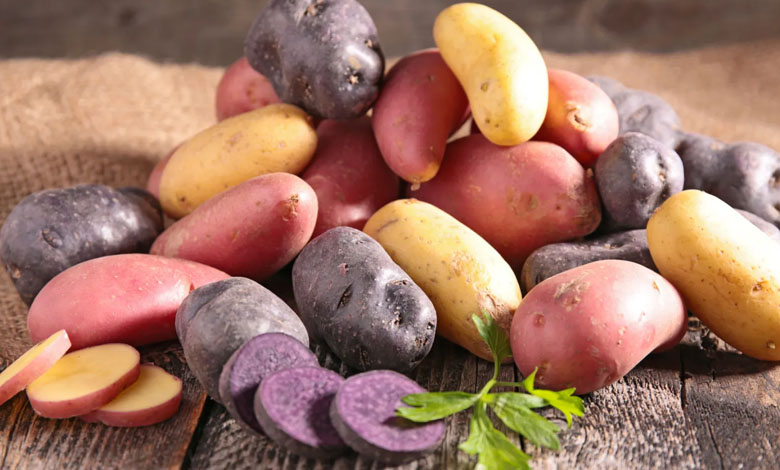Are potatoes healthful?

The potato is a staple in Western cuisine, often used as a side dish to a protein and vegetable. This vegetable is inexpensive, available worldwide, and relatively easy to grow. So, are potatoes good for your health, and if so, how much should you eat?
These are underground tubers that grow on the roots of potato plants and are one of the most popular root vegetables. Today, many types of potatoes can be found at any local grocery store, but the humble white potato remains a classic and favorite fall vegetable. It is commonly baked, mashed and fried and added to countless recipes, from stew to savory pies.
Health Benefits
Potatoes on their own offer a whole host of health benefits thanks to their impressive nutritional content. Remember, though, that if you start adding toppings, like cheese, sour cream, bacon, or excess salt, or eat snacks like crisps, you negate some of these potential benefits. . If you pay attention to your portions and toppings, potatoes have the following health benefits:
1. High in fiber
Potatoes are a good source of dietary fiber, which is essential for digestive health. Eating fiber-rich foods promotes regularity, aids weight loss, and improves cardiovascular health. Fiber also promotes healthy cholesterol levels.
2. High in Vitamin C
Potatoes are considered an excellent source of antioxidants and vitamin C, a micronutrient that plays a role in maintaining the body’s connective tissue, protecting the heart, improving immunity and stimulating absorption of other nutrients consumed. Research shows that vitamin C also promotes healthy skin and the formation of collagen, an important protein that helps wound healing and is used to form blood vessels, ligaments and tendons. As adults age, their collagen production decreases, which is why consuming foods containing vitamin C is beneficial.
3. Aids Digestion with Prebiotics
The resistant starch found in potatoes serves as a prebiotic, an indigestible fiber compound that helps feed probiotics in the gut. Research suggests that increasing the consumption of prebiotics can improve gut health and the body’s response to stress, reduce inflammation, promote weight loss and improve digestion.
4. A good source of potassium
Potatoes are a good source of potassium, an essential nutrient that is needed to maintain fluid and electrolyte balance in the body. Potassium is also needed for several body functions, including maintaining hydration and allowing organs such as the heart, kidneys, and brain to function properly. Studies show that eating potassium-rich foods promotes heart health, helps lower blood pressure, decreases the risk of stroke, and may even prevent PMS cramps and muscle weakness.
5. Contains Vitamin B6
Although not as high in vitamin B6 as animal meat, beans and seeds, potatoes are a good source of this micronutrient and therefore help maintain a healthy metabolism and other important bodily functions. Thanks to their vitamin B6 content, potatoes help support brain function, improve mood, protect eye health and reduce inflammation.
How to choose, cook and use
Potatoes are available year-round at grocery stores. A raw potato has a shelf life of about a week and can be stored at room temperature. Look for a firm potato with smooth skin and no cracks, bruises or cuts. Before cooking, clean the skin of residual dirt, but keep the skin on if possible.
There are many ways to prepare potatoes and add them to meals. They can be:
Porridges
Baked in the oven
Toasts
Fries
In the microwave
If you eat potatoes for their nutritional value, baking, roasting, or microwaving are the best options. These methods reduce nutrient loss and do not require cooking oils.












